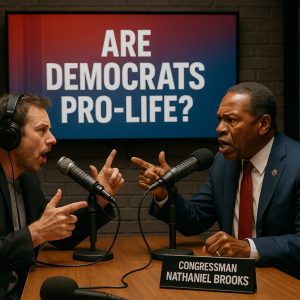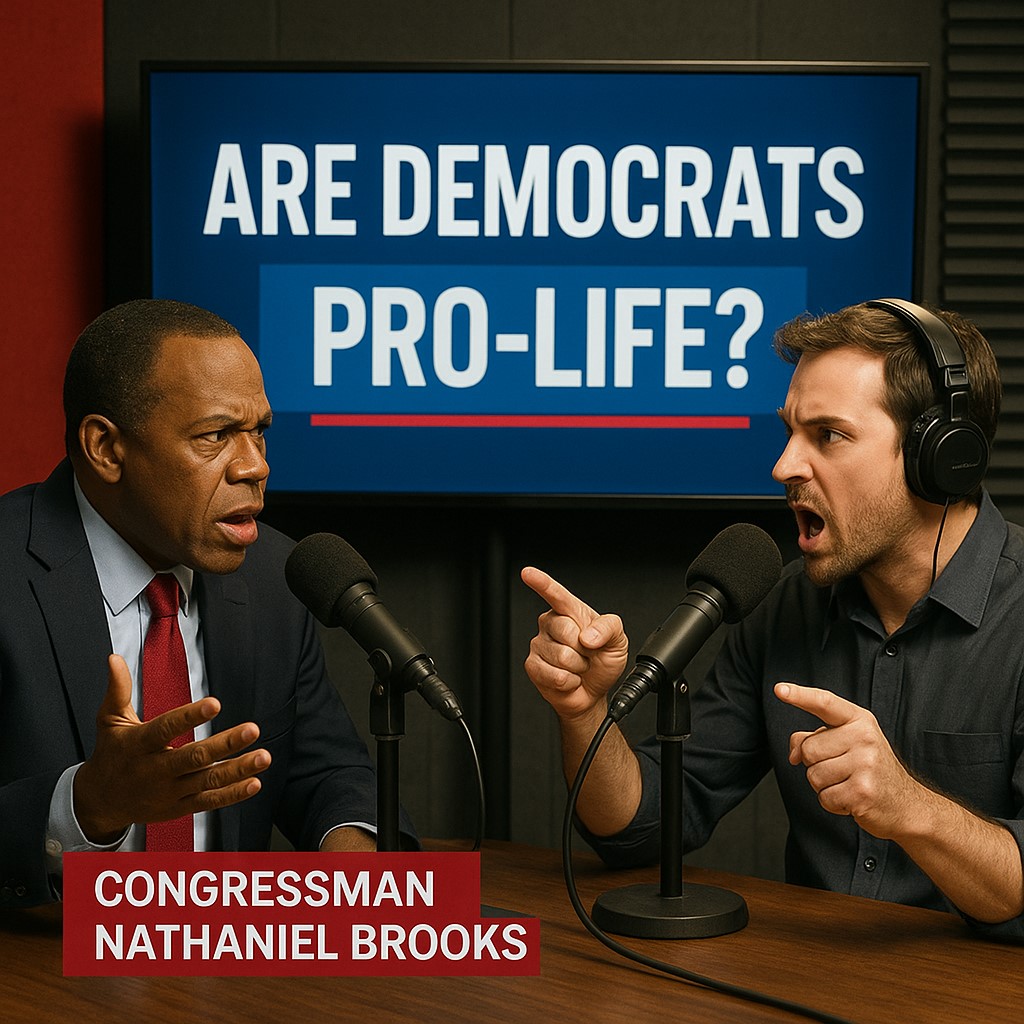Part 3: Are Democrats Pro Life? This fictional series explores what might happen if the Democratic Party became pro-life, including policy shifts, internal debates, and public reactions.
The environment was charged with tension as the Democratic guest, Congressman Nathaniel Brooks, appeared on the popular radio program Voices of Others. The studio, located in a bustling downtown Washington, D.C. building, was filled with the hum of activity as producers managed call-ins and adjusted sound levels. Brooks sat confidently at the microphone, prepared for tough questions from listeners. The host, a seasoned journalist known for fostering lively debates, introduced a caller who pressed the congressman: “How can you justify taking away women’s bodily autonomy and healthcare options by supporting an abortion ban?”
Christian Merchant Card Processing
Pro Life Payments is the for-profit arm of the pro-life movement. Pro-Life Payments is reducing abortion in America by turning customer financial transactions into pro-life funding. We give 15% of gross revenue to Pro-Life organizations. Payments is transitioning donation platforms, credit card processing and peer to peer payments into a funding engine for the pro-life community. Pro-Life Payments is providing customers with the alternative to the abortion-supporting financial institutions and payment processors they are supporting today.
Abortion is Not Healthcare
 Brooks leaned into the microphone and responded with calm conviction. “Thank you for your question,” he began. “But let’s address the premise head-on: abortion is not healthcare. Healthcare is about healing and preserving life, not ending it.” He cited evidence from medical organizations like the Alliance for Hippocratic Medicine, which emphasizes that abortion treats no disease process and carries significant risks to women’s health, including increased chances of preterm delivery in future pregnancies, mental health disorders, and even breast cancer. “The science is clear,” Brooks continued. “When we care for pregnant women, we are caring for two distinct patients-the mother and her unborn child. Abortion intentionally ends one of those lives. That’s not healthcare; that’s harm.” This evidence-based approach is part of the ongoing conversation: Are Democrats Pro Life?
Brooks leaned into the microphone and responded with calm conviction. “Thank you for your question,” he began. “But let’s address the premise head-on: abortion is not healthcare. Healthcare is about healing and preserving life, not ending it.” He cited evidence from medical organizations like the Alliance for Hippocratic Medicine, which emphasizes that abortion treats no disease process and carries significant risks to women’s health, including increased chances of preterm delivery in future pregnancies, mental health disorders, and even breast cancer. “The science is clear,” Brooks continued. “When we care for pregnant women, we are caring for two distinct patients-the mother and her unborn child. Abortion intentionally ends one of those lives. That’s not healthcare; that’s harm.” This evidence-based approach is part of the ongoing conversation: Are Democrats Pro Life?
Expanded Healthcare Access
The congressman also challenged the idea that banning abortion strips women of autonomy. “What we’re doing is empowering women by providing real support-expanded healthcare access, paid parental leave, and childcare subsidies-so they don’t feel forced into a decision that ends a life,” he explained. “True autonomy comes from having resources and options to thrive as mothers.” Brooks then turned his critique toward his own party’s dissenters and Republicans alike. “For decades, we’ve watched Republicans fail to act decisively on this issue while some in our own ranks have clung to outdated narratives about reproductive rights,” he said. “Let me be clear: abortion doesn’t empower women-it exploits them during vulnerable moments.” These arguments are central to the question: Are Democrats Pro Life?
Not Clinging to Extreme Ideologies
The host pressed him further on whether this stance alienates progressive voters within his party. Brooks didn’t flinch. “Look,” he said firmly, “we’ve seen how clinging to extreme ideologies-whether it’s denying biological realities or refusing to address illegal drug gangs-weakens our party. It’s time to move forward with policies that strengthen families and communities and our party.” As the segment ended, Brooks left listeners with a final thought: “This isn’t about taking something away; it’s about giving America a future where every life has value and every mother has support.” Brooks’ appearance sparked heated discussions across social media and follow-up debates on podcasts like American Renewal, where his evidence-based approach was both praised and critiqued by listeners from across the political spectrum. The debate continues: Are Democrats Pro Life?
